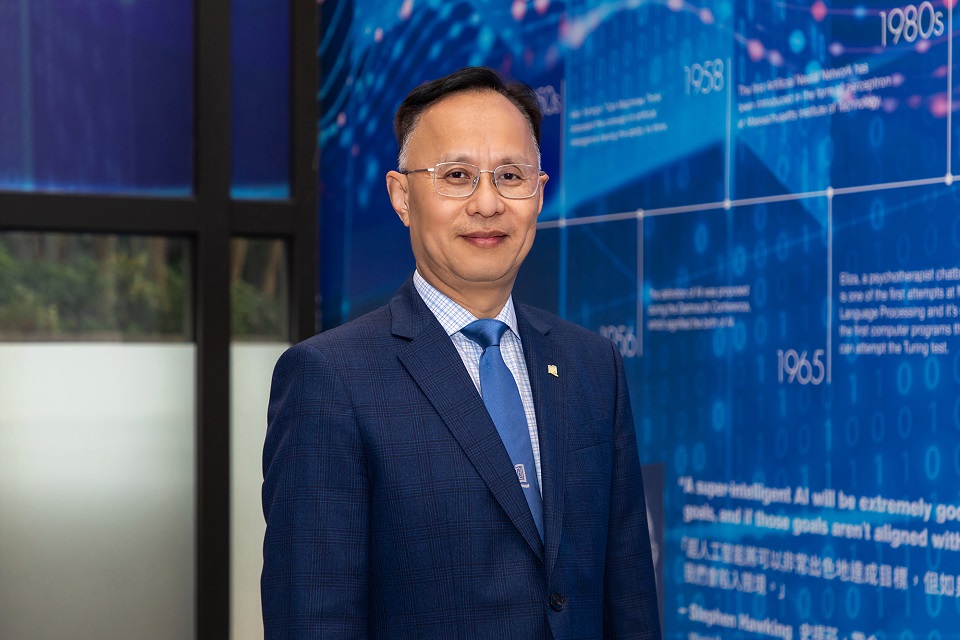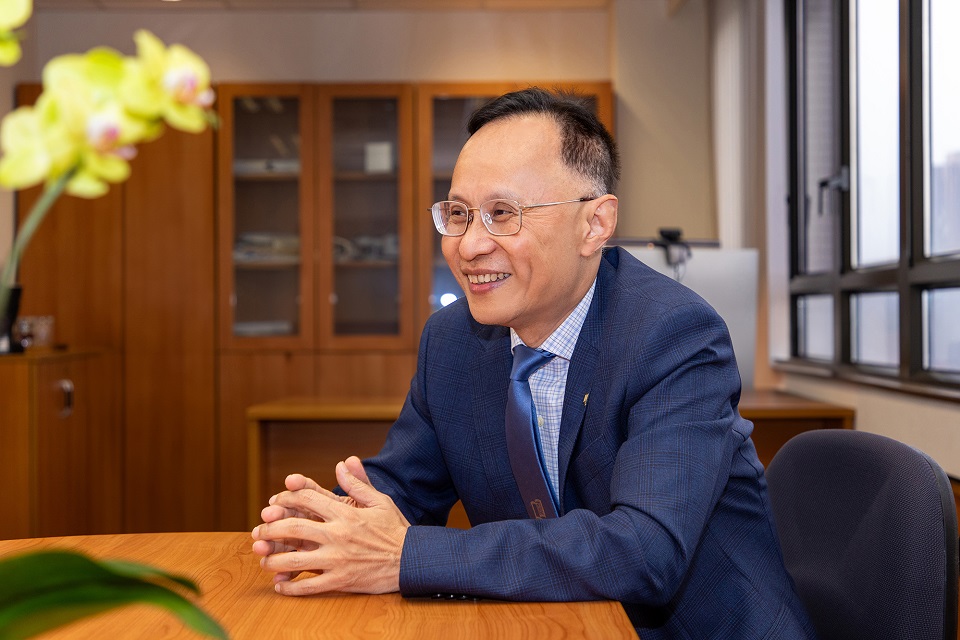Discover HKBU
Reshaping communication in the age of Artificial Intelligence
28 Mar 2024


As new digital technologies have transformed the way people communicate, HKBU’s School of Communication has been moving towards a better understanding of emerging media through academic and research excellence. Recently, the School has undergone another important transition – welcoming Professor Zhong Bu as its new dean.
A prominent researcher in the field of communication, technology and human behaviour, Professor Zhong has a rich record of leadership roles within and beyond academia, he currently holds a position of tenured Professor at Pennsylvania State University in the United States and serves an expert member to the Information for Development Working Group at UNESCO.
He is the former President of the Chinese Communication Association which was found in the United States. He was the Head of the Mass Communication and Society Division within the Association for Education in Journalism and Mass Communication (AEJMC). Professor Zhong also holds the role of Senior Editor at the academic journal Computers in Human Behavior.
Professor Zhong joined HKBU in 2022 as the Head and Professor of the Department of Interactive Media, and now as Dean of Communication, he looks forward to guiding the School forward into the age of Artificial Intelligence (AI).
A forward-thinking curriculum
Professor Zhong believes in the great potential of communication to drive positive change in society through harnessing new digital technologies. “It is important for communication schools today to embrace emerging technologies, understand societal trends and address the changes in the media and communications industry,” he says. “One priority we have is to offer a ‘forward-thinking curriculum’ by continuously innovating what we teach.”
He envisions that students will not only become communication professionals and good storytellers, but also gain insights into people’s interaction with technology, as well as how businesses interact with people on digital platforms. The goal is, he says, for students to be leaders and experts, not skilled workers who will be easily replaced by technologies.
“The key is to cultivate a mindset of lifelong learning. Our students will be equipped with the knowledge and skills that enable them to thrive in the job market, and predict the future needs of the job market,” he says. To that end, the School is planning to launch a novel major programme which focuses on interactive media and AI management, as well as to introduce new courses integrating communication and technology.


Crossing disciplinary boundaries
Another priority of Professor Zhong as the new dean is to keep driving the development of transdisciplinary research and education. Considering the field of communication “inherently transdisciplinary”, Professor Zhong seeks to remove barriers between the School’s three departments, namely the Department of Communication Studies, the Department of Interactive Media and the Department of Journalism.
He says: “Our faculty members come from different academic backgrounds, but all of us must meet on the same page so we can join hands and create new synergy. By crossing the boundaries between disciplines, we can generate new knowledge while preserving the integrity of each individual discipline.” In addition, he sets out to foster greater collaborations with other faculties and schools across the University to make new discoveries and create more impactful research.
Recognising the importance of global engagement, Professor Zhong is leading the School to develop research and academic partnerships with renowned institutions from the Mainland and around the world. Further out on his agenda is to build a greater connection with alumni. “Our alumni have been doing very well in the industry. By bringing together our alumni and students through networking activities or mentorship programmes, we can help students expand their personal and professional network, receive guidance on their future career development, and secure job opportunities,” he says.
Professor Zhong will also work closely with colleagues to pursue engagement initiatives that help create a positive environment for students, faculty and staff. He says: “When people feel energised and inspired, they can contribute more. I hope to build on our School’s accomplishments, and strengthen the School’s position among the top communication schools in Asia.”